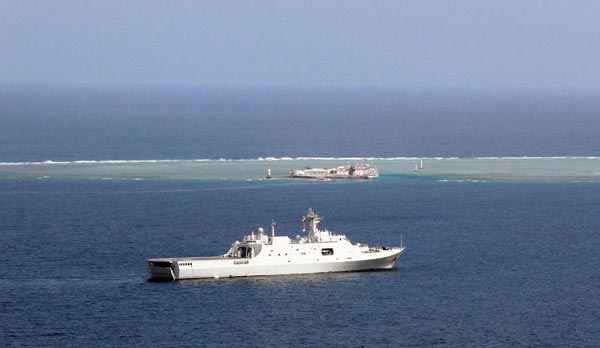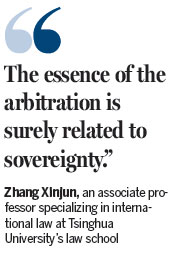 |
|
A Chinese marine surveillance ship conducts patrol mission in waters of the South China Sea, file photo. [Photo/Xinhua] |
In 2006, China made a declaration under Article 298 of the UNCLOS that excludes from the compulsory settlement procedures any disputes over maritime delimitation and historic titles, according to the Foreign Ministry's statement.
"China's position of neither accepting nor participating in the arbitration unilaterally initiated by the Philippines remains unchanged," Lu said. "By doing so, the Philippines breached its repeatedly affirmed consensus with China and its undertakings in the Declaration on the Conduct of Parties in the South China Sea."
The Chinese government released a position paper in December to present China's stance on the South China Sea and the legal grounds supporting it.

Zhang Xinjun, an associate professor specializing in international law at Tsinghua University's law school, said that even though the US has been playing with words to appear to keep its promise of neutrality with regard to the competing claims in the area, China clearly doesn't buy it.
Moreover, the Philippines avoided directly questioning China's sovereignty over the South China Sea in its plea to the UN tribunal, Zhang said.
"From China's perspective, the essence of the arbitration is surely related to sovereignty. There is no way to separate the other disputes from the subject of sovereignty," Zhang said.
"The other conflict here is that the US has - rather than being a shadow - almost jumped out to the front of the stage in this case.
"Interestingly, we can see that the Philippines' team of lawyers, which included top lawyers and international law scholars from Washington, have similar pursuits like the US government's stand in this area. That probably is why Mr Lu Kang called them an 'arbitrator outside the tribunal'," Zhang said.